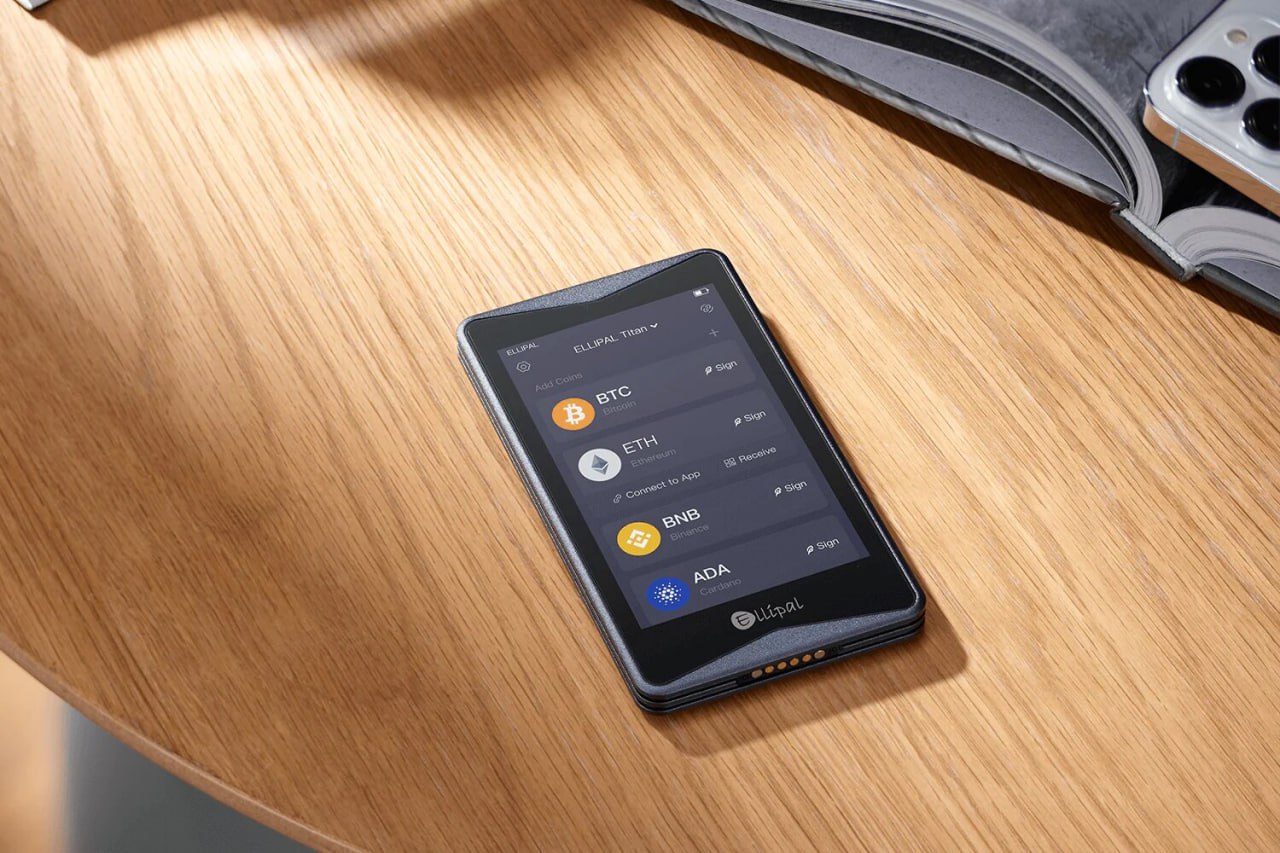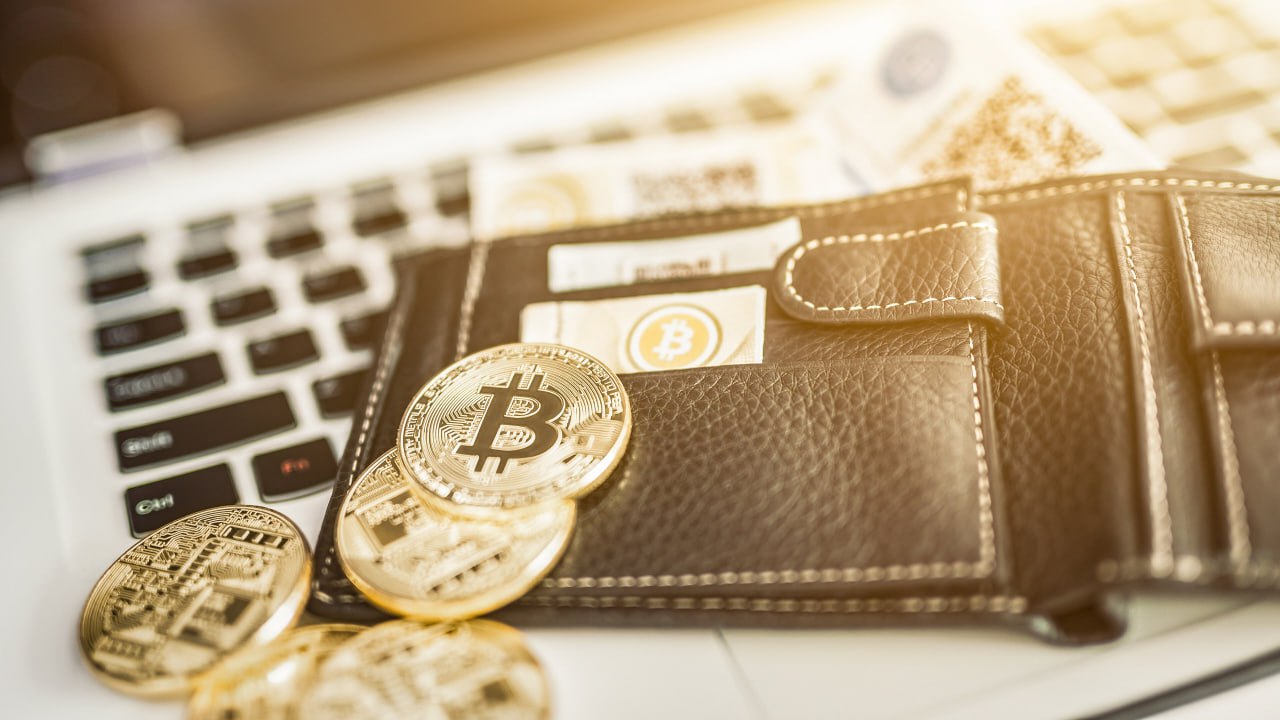As cryptocurrency grows in popularity and value, investors and enthusiasts must understand the importance of choosing the right wallet to store their digital assets securely. With numerous wallet options available, each offering different features and levels of security, selecting the best wallet for crypto can be daunting. Let's explore the factors to consider when choosing a cryptocurrency wallet and provide an overview of the different types of crypto wallets available in the market.
Types of Crypto Wallets
Different types of crypto wallets are available, each with advantages and disadvantages. Let's explore the most common types:
1. Software Wallet:
These wallets are applications that can be installed on computers or mobile devices. They provide users with a convenient way to manage their cryptocurrencies through user-friendly interfaces. They generate and store private keys, allowing them to send, receive, and store digital assets. Software wallets can be further categorized:
A. Desktop Wallets:
Installed on a personal computer and offers high security. They give users complete control over their private keys and allow them to manage multiple cryptocurrencies. Desktop wallets often require the user to download and synchronize the entire blockchain, which can take up significant storage space and time.
B. Mobile Wallets:
They are designed for smartphones and tablets. They offer accessibility and convenience, allowing users to manage their digital assets on the go. Mobile wallets provide a user-friendly interface and are often compatible with QR code scanning, making transactions quick and easy. However, they may be more susceptible to potential security risks than desktop wallets due to the inherent vulnerabilities of mobile devices.
C. Web Wallets:
Web wallets, also known as online wallets, can be accessed through web browsers and are hosted on cloud servers. They offer accessibility from any device with an internet connection, eliminating the need for software installation. Web wallets are user-friendly and often provide additional features like integrated exchanges for trading cryptocurrencies. However, as web wallets store private keys on external servers, users must trust the wallet provider's security measures to protect their assets.
2. Hardware Wallets
Hardware wallets, widely recognized as the best wallet for crypto, are physical devices explicitly designed for securely storing cryptocurrencies. They provide an offline storage solution, keeping the private keys offline and far from potential online threats. Hardware wallets are one of the most secure options for long-term storage. When a transaction needs to be made, the hardware wallet signs the transaction securely and then connects to a computer or mobile device. Some notable features of hardware wallets, making them the best wallet for crypto, include:
A. Cold Storage:
Hardware wallets operate in a cold storage environment, meaning they are not connected to the internet when not in use. This dramatically reduces the risk of online attacks or unauthorized access.
B. Private Key Isolation:
The private keys are stored securely within the hardware wallet, inaccessible to any software or malware on the computer or device. This isolation ensures the private keys remain safe even if the connected device is compromised.
C. Physical Button Verification:
Hardware wallets often incorporate physical buttons to verify and authorize transactions directly on the device. This gives an extra layer of security by preventing potential phishing attacks or unauthorized transactions.
3. Paper Wallet
Paper wallets offer an offline method of storing cryptocurrencies. They involve printing the user's private and public keys or QR codes on paper. Paper wallets provide an air-gapped storage solution, making them resistant to online attacks.
A. Print Security:
Generating and printing paper wallets should be done securely on a trusted and offline computer to prevent potential compromise of the keys.
B. Physical Security:
Once generated, paper wallets should be stored securely to secure them from loss, damage, or theft. Physical copies can also deteriorate over time, so it's essential to consider appropriate backup measures.
C. Limited Accessibility:
Users must manually input the private keys or scan the QR codes into a software or online wallet to make transactions or manage funds stored in a paper wallet. This process can be cumbersome and requires extra caution to ensure the keys are not compromised during input.
4. Other Wallet Types
Apart from the main wallet types mentioned above, there are additional variations that cater to specific use cases:
A. Multi-Signature Wallets:
Multi-signature wallets require multiple private keys to authorize transactions. Organizations or groups often use these wallets where multiple parties must approve transactions, adding an extra layer of security and accountability.
B. Custodial Wallets:
Custodial wallets are wallets where a third-party service provider holds and manages users' private keys on their behalf. These wallets offer convenience and ease of use but come with the trade-off of reduced control over the assets and relying on the security practices of the custodian.

User Experience and Interface
In addition to security considerations, user experience and interface are crucial factors to consider when selecting the best wallet for crypto. A well-designed and intuitive wallet can significantly enhance your overall experience and make managing your digital assets more accessible and enjoyable. Here are some key points to consider:
Ease of Use
A user-friendly wallet interface is essential, especially for newcomers to cryptocurrencies. The wallet should have an intuitive layout and navigation, allowing you to quickly understand and access its features. Look for wallets that provide a clear and straightforward setup process, making it easy to create an account, import or generate a wallet, and initiate transactions. The wallet's user interface should present information clearly and organized, making tracking your balances, transaction history, and other relevant details simple.
Transaction Speed and Efficiency
The speed and efficiency of transactions can significantly impact your experience with a wallet. A good wallet should provide fast and reliable transaction processing, ensuring that transactions are confirmed promptly on the blockchain. Slow transaction times or network congestion can lead to frustrating delays and inefficiencies. Consider wallets that offer features such as dynamic transaction fees, allowing you to adjust fees based on network congestion to ensure timely confirmation of transactions.
Customer Support and Documentation:
Adequate customer support is vital when using a cryptocurrency wallet. Look for wallets that provide comprehensive documentation, FAQs, and user guides to help you navigate through common issues and questions. Additionally, consider wallets that offer responsive customer support channels, such as email, live chat, or community forums, where you can seek assistance in case of any technical problems or concerns. Responsive and helpful customer support can significantly enhance your overall experience and provide peace of mind knowing that help is readily available when needed.
Compatibility with Devices and Operating Systems:
Consider the compatibility of the wallet with your preferred devices and operating systems. Some wallets are designed for specific platforms like Windows, macOS, Linux, iOS, or Android. Ensure that your wallet is suitable for the devices you use most frequently. Compatibility ensures that you can access your wallet seamlessly across different devices, allowing you to conveniently manage your digital assets at home or on the go.
Additional Features and Integrations
Some wallets may integrate with popular cryptocurrency exchanges, allowing you to trade or swap assets directly from the wallet interface. Others may offer portfolio tracking tools, price alerts, or multi-currency support. Determine your preferences for these additional features or integrations.
User Reviews and Reputation:
Before finalizing your decision, take the time to research user reviews and the reputation of the wallet provider. User reviews can provide valuable insights into the actual user experience with the wallet, highlighting both positive aspects and potential drawbacks. Look for reviews on reliable platforms and forums, and consider feedback from trusted sources within the cryptocurrency community. Assess the wallet provider's track record, including how they responded to past security incidents or software vulnerabilities. A wallet with a positive reputation and a strong track record will likely provide a satisfactory user experience.
Supported Cryptocurrencies
When selecting the best wallet for crypto, it's crucial to ensure that it supports the specific cryptocurrencies you intend to store and manage. Not all wallets are compatible with every digital asset, as different cryptocurrencies may have unique technical specifications and underlying blockchain networks. Here are some key points to consider as regards supported cryptocurrencies:
Wallet Specifications
Each wallet has its own set of specifications and capabilities, including the cryptocurrencies it supports. Before choosing a wallet, thoroughly review its documentation or website to determine which digital assets are compatible with the wallet. This information is typically provided as a supported coin list or a list of compatible blockchain networks. Ensure the wallet supports the cryptocurrencies you currently hold or plan to acquire.
Exclusive Wallets
Some wallets are designed exclusively for specific cryptocurrencies. For example, wallets specifically tailored for Bitcoin (BTC) or Ethereum (ETH) may provide advanced features and integrations specific to those cryptocurrencies. These exclusive wallets often prioritize compatibility and optimal user experience for the supported cryptocurrency. Using a wallet designed exclusively for that asset might be a good option if you primarily hold a specific digital asset.
Multi-Currency Wallets
On the other hand, some wallets support a wide range of cryptocurrencies. These multi-currency wallets are designed to be versatile and accommodate various digital assets within a single interface. They offer the convenience of managing multiple cryptocurrencies from a single wallet, eliminating the need for multiple wallet applications. Multi-currency wallets often provide features such as portfolio tracking, asset management, and easy swapping or trading between supported cryptocurrencies. If you have a diverse portfolio of cryptocurrencies, opting for a multi-currency wallet might be more suitable.
Token Standards
In addition to specific cryptocurrencies, it's also essential to consider the compatibility of the wallet with different token standards. Tokens are digital assets built on existing blockchain networks, such as ERC-20 tokens on the Ethereum network. These tokens adhere to specific technical standards and require compatible wallets to store and manage them. If you hold tokens built on a specific blockchain network, ensure the wallet supports the respective token standard. This information is typically available in the wallet's documentation or website.
Ongoing Development and Support
The cryptocurrency market is dynamic, with new digital assets and token standards emerging regularly. When evaluating wallet options, consider the wallet provider's commitment to ongoing development and adding support for new cryptocurrencies. Check if the wallet regularly updates its supported coin list or has a roadmap to integrate new assets. A wallet that actively supports and adapts to the evolving cryptocurrency landscape ensures that you can manage a broader range of assets in the future without needing to switch wallets.
Third-Party Integrations
Some wallets offer integrations with external platforms, such as cryptocurrency exchanges or decentralized finance protocols. These integrations can provide added convenience, allowing you to directly access and interact with supported platforms within the wallet interface. If you frequently use exchanges or DeFi applications, consider wallets that offer integrations with them. This can streamline your cryptocurrency management and trading activities.
PlasBit Wallet: Advance Security Features for Crypto Assets
When storing cryptocurrencies, security is of utmost importance. The digital nature of cryptocurrencies makes them attractive targets for hackers and malicious actors. When choosing the best wallet for crypto to store your digital assets, it's crucial to assess the security measures implemented by the wallet provider:
A. Secure Storage
ISO/IEC 27001 guarantees that PlasBit's security infrastructure is of the highest standard, ensuring the safety of the enterprise and minimizing risks for all clients and investors. Being ISO/IEC 27001 certified, PlasBit utilizes the most rigorous security policies, risk assessment, data protection, and cybersecurity.
B. Offline Storage for Enhanced Security:
We understand the importance of offline storage in securing your cryptocurrencies. We employ offline storage solutions to minimize the risk of unauthorized access and hacking attempts. Your assets are securely stored in our encrypted offline deposit boxes and vaults distributed globally. This offline storage approach adds an extra layer of protection, ensuring the safety of your digital assets.
C. Robust Measures to Protect Your Assets
Our wallet implements robust security measures, including encryption techniques, to safeguard your private keys. This ensures that only you have control over your funds. Additionally, we offer added security features such as biometrics and 2-Factor Authentication, providing an extra layer of protection to your account.
D. Private Key Encryption:
Our wallet employs advanced encryption algorithms to encrypt your private keys with Secure Enclave, ensuring they remain secure and inaccessible to unauthorized individuals. By encrypting your private keys, we ensure you have complete control over your funds while maintaining the highest security standards for your assets.
E. Wide Range of Supported Cryptocurrencies:
PlasBit Wallet provides a comprehensive solution for managing various cryptocurrencies. Our wallet supports a diverse range of popular cryptocurrencies, including Bitcoin (BTC), Ethereum (ETH), Litecoin (LTC), Cardano (ADA), ERC20 tokens, Tron (TRX), USDT TRC20, and more. With our broad support, you can store, track, and manage multiple digital assets securely in one place.
F. User-Friendly Interface:
Our wallet management is effortless for both beginners and experienced users. PlasBit Wallet features a user-friendly interface designed for seamless navigation. You can easily monitor your balances, track transactions, and initiate transfers with a few clicks. Our wallet prioritizes simplicity and convenience to enhance your overall wallet experience.
Registering and Setting Up Your PlasBit Account
To begin using our secure wallet solution, follow these straightforward steps to register and create your account on PlasBit:
1. Visit the Official Website:
Head to our official website homepage and locate the registration button. Click "Get Started" to be directed to the designated registration page.
2. Provide Your Email Address:
Fill out the registration form by providing an email address. Your registered email address will be your login username for accessing your account.
3. Create a Strong Password:
Choose a strong password incorporating lowercase and uppercase letters, numbers, and special characters. Your password will be used to secure your account and access your wallet.
4. Email Verification:
After completing the registration form, proceed to your email inbox, where you will find a verification link sent by our team. Click the link to activate and verify your account.
5. Optional: Set Up Additional Security Measures:
For added account security, we recommend taking advantage of optional security features offered by PlasBit. These features include two-factor authentication (2FA) and biometric authentication if supported by your device. Enabling these additional security measures protects your account and helps safeguard your digital assets.
6. Access Your PlasBit Wallet:
Once your account activation is complete, you can log in through the email address and password you provided. This will grant you access to the wallet interface, where you can view your balances, manage your digital assets, and explore the diverse range of features on the platform.
Following these simple steps, you can quickly register and create your account on our platform. Once registered, you can access your wallet and take advantage of the features and functionalities offered by PlasBit.
Conclusion
Choosing the best wallet for crypto requires careful consideration of various factors, including security features, ease of use, and supported cryptocurrencies. It's crucial to prioritize security by opting for wallets that offer private key control, strong encryption, and backup and recovery options. Additionally, selecting a wallet that aligns with your usage preferences, whether software, hardware, paper, or online-based, will contribute to a smooth user experience. Always do thorough research, read user reviews, and seek recommendations from trusted sources to make an informed decision. By selecting the best wallet for crypto, you can secure your digital assets and embark on your cryptocurrency journey confidently.







